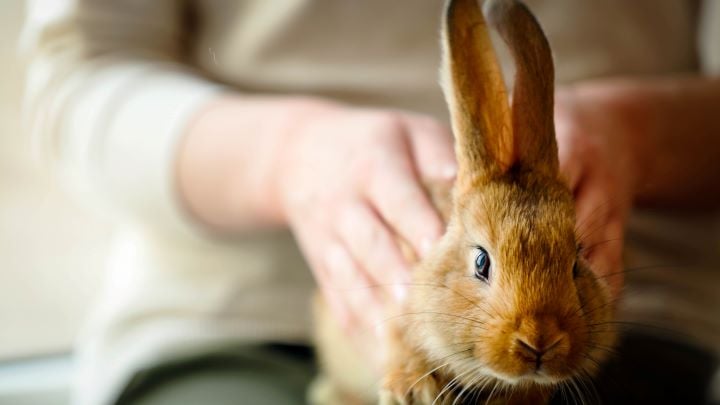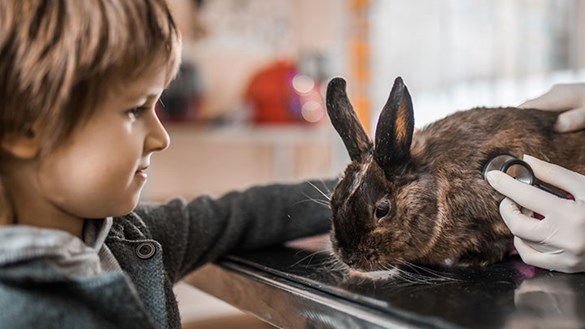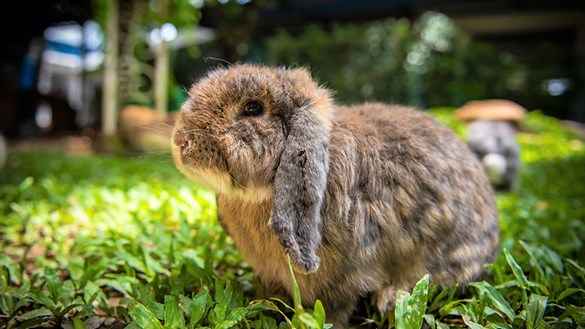Rabbits And Myxomatosis
We recommend rabbits are vaccinated every 12 months to protect them against contracting potentially fatal diseases such as Myxomatosis.
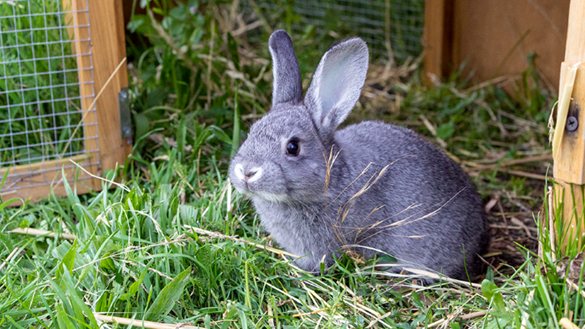
What Is Myxomatosis?
Myxomatosis is a highly infectious viral disease that has a mortality rate in infected rabbits of between 95%-99%.
It’s a virus that attacks a rabbit’s skin, eyes, lung and liver and also their genitals. It’s a nasty disease, which can leave your rabbit more prone to other infections.
Vaccination is the best way to protect your rabbit.
How is Myxomatosis spread?
The infection can be transmitted to rabbits via biting insects such as fleas, ticks, mites and mosquitos, though it can also be transmitted through direct contact with an infected rabbit.
It is commonly found in wild rabbits and is then often spread by the parasites from wild rabbits landing on domestic rabbits.
Signs and symptoms of Myxomatosis in rabbits
There are various symptoms that your rabbit could display if they have been infected by myxomatosis; these include:
- Swelling around the eyes and the ears
- A milky discharge from the eyes
- A runny nose
- Swelling around the genitals
- Patches of mange
- Lethargy
- Loss of appetite
- Fever
- Breathing problems
Can vaccinated rabbits get Myxomatosis?
If an unvaccinated pet catches the disease, it’s unlikely they’ll recover, even with intensive treatment.
If a vaccinated rabbit catches myxomatosis – the symptoms are much milder and they may get skin lumps or scabs on their face. If you suspect that your vaccinated rabbit does have myxomatosis, you should always see your vet as soon as possible.
Is there a treatment for Myxomatosis?
Unfortunately, there is no cure available for myxomatosis. Only supportive care can be given, so prevention is key.
How to prevent Myxomatosis in your pet?
The best way to prevent your rabbit from catching the disease is to regularly vaccinate them, there are a few other ways you can reduce the risk of them catching the myxoma virus:
- Choose dust-extracted hay or kiln-dried grass
- Fit and regularly maintain fine mesh insect screens to outdoor enclosures
- If you have cats or dogs, make sure their flea and tick treatments are up to date
- Prevent wild rabbits from getting into your garden
- Ensure there’s nothing to attract vermin and wild birds to hutches or runs, and use small-hole mesh to keep unwelcome visitors out
The Medivet Healthcare Plan is an easy way to get your rabbit fully vaccinated and protected against parasites. We have a plan that is designed especially for rabbits.
Can Myxomatosis be transmitted to humans or other pets?
Myxomatosis can only affect rabbits and cannot transmitted to humans or other pets like dogs and cats. If you do have a dog or a cat however, it is vital to get their appropriate vaccinations.
What other disease could affect my rabbit?
Flystrike (also known as myasis) is a serious condition in rabbits caused by flies laying eggs on their body. Find out how to spot the signs and prevent flystrike in rabbits.
Viral Haemorrhagic Disease (RHD1 and RHD2) is a fatal disease that affects rabbits across the UK. Find out more about this highly contagious virus and how to prevent it.
If you need more information about Myxomatosis or other diseases that can affect your rabbit, speak to your vet.
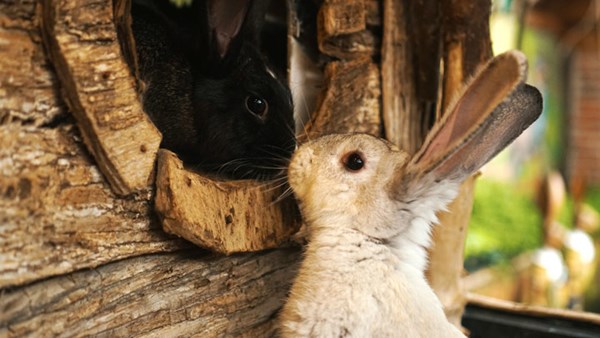
Our Healthcare Plan For Your Rabbit
With the Medivet Healthcare Plan, you can save an average of £147 each year and that’s without discounts that the plan offers on top.
Learn more


